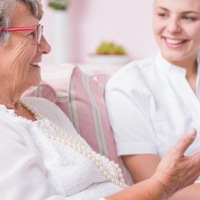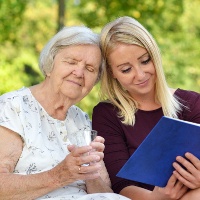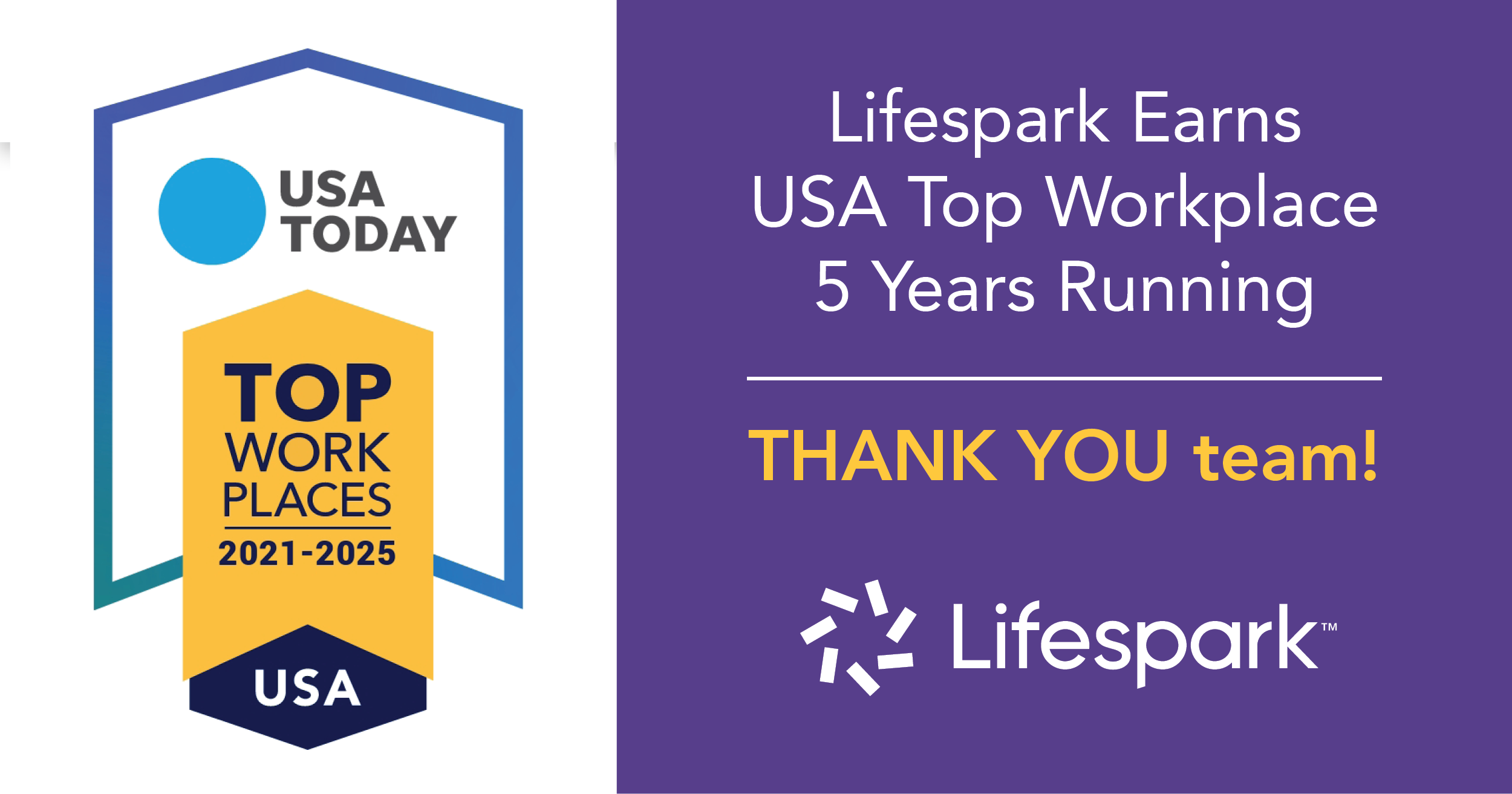
Social isolation may not even be on your radar as a reason for seeking home health agencies for your mom’s senior care needs but it should be. Your initial search may be focused on caregiving or in home care, that’s what often leads people to call Lifesprk because they need help with common triggers. But let me share a personal experience with you and how I discovered that social isolation was the culprit for an older relative’s unnecessary new medications and recent falls – and why combating social isolation should be part of  your loved one’s care plan.
your loved one’s care plan.
At a family birthday, my sister’s mother-in-law, Helen, was there. She’s 80, and very hip and outgoing. Age is just a number to her, she lives life exactly as she wishes. I admire that.
That day though I noticed her acting melancholy, very rare for her. She had a bruise on her arm and looked pale. When I asked her she said she just didn’t feel herself. I dug a little deeper. Come to find out, she had broken up with her boyfriend a few weeks ago and didn’t have anyone to go out with. According to her, all her friends were ‘old,’ and didn’t want to do anything. As she no longer drives because of her eyesight, she misses going to the grocery store on her own and as a result wasn’t cooking as much. She was losing that drive to get up in the morning.
My mind was screaming ‘red flag, red flag’ but I just listened. The last thing at her age she wanted was to be a bother to anyone – if she asked for help people would think she wasn’t as independent anymore and that was not something she wanted. Her sons would just yell ‘Mom, why didn’t you just ask for help’ (gasp, there’s that word –help). No, Helen wasn’t about to ask for help so she stayed in her condo, alone, admitting to having an afternoon cocktail a little earlier than four o’clock because she was bored (which didn’t mix well with her medications she was taking irregularly.) All of that led to a minor fall which was ‘no big deal.’
That was a lot to take in during one conversation. Any of this sounding familiar? I felt her anguish. Here she was an extremely independent woman who was trying to process losing all at once so many connections in her life. And yet everyone just slugged off her feelings as ‘normal aging.’ Except it isn’t.
Social isolation is often a major contributor to seniors ending up in the hospital. The small issues that stem from feeling lonely quickly manifest into greater issues that lead to falls, medication errors, and worsening of chronic illness – addressing it is a powerful opportunity and should be part of every senior’s home care plan. Here’s why:
- Prolonged social isolation can be as big a health risk as smoking 15 cigarettes per day, according to the National Association of Area Agencies on Aging (n4a). It’s why Lifespark uses a whole person approach to senior care and incorporates social isolation as part of our life planning process. Ninety-percent of the factors that shape poor health outcomes are due to reasons other than health such as social isolation. And yet few health care options address the full scope of life challenges many seniors face which can lead to frequent hospitalizations and a downward cycle of independence.
- Having meaningful purpose could help your loved one live longer – Positive feelings (happiness) have been associated with reduced inflammatory and cardiovascular response to stress, significantly reducing the risk of heart attack.
- People with a high sense of purpose are less likely to have a stroke, heart attack or coronary artery disease requiring a stent or bypass surgery. That’s according to Dr. Randy Cohen, a cardiologist at Mount Sinai St. Luke’s-Roosevelt Hospital in NYC. In fact, having a meaningful purpose in life has been shown to dramatically reduce risks for dementia too.
Helen’s story is one that is all too common among seniors – they don’t always need ‘help’ – what they need is proactive guidance to identify and anticipate their risks for social isolation and then get them back on track doing what they love. Isn’t that what we all want at every age?
After our conversation, Helen’s sons took her to the doctor who prescribed more medications but no one broached the subject about her increasing loneliness like she and I had in my sister’s living room. It’s too bad. Since then she’s had another bigger fall and now the family is looking at senior housing. The cost to her financially and emotionally is starting what we at Lifespark refer to as the ‘roller coaster of health care crises.’
So the short answer, amid a long story, to the question ‘Why should combating social isolation be a part of every senior’s home care plan?’ is because it not only helps improve health outcomes, it improves our overall sense of wellbeing.
The right in-home care plan would incorporate social connections as a key driver in creating better health outcomes. But not every home care or home health agency addresses these issues so make sure you ask. Have questions? Reach out to our team and they’ll answer them!



